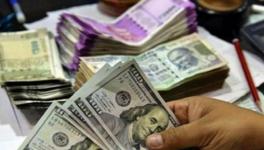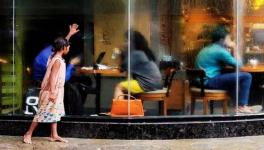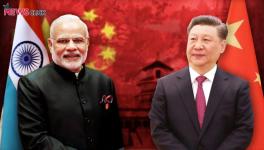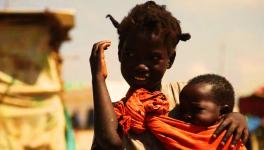India in for Serious Livelihood Crisis; Things Worse for Working People This Time: Jean Dreze
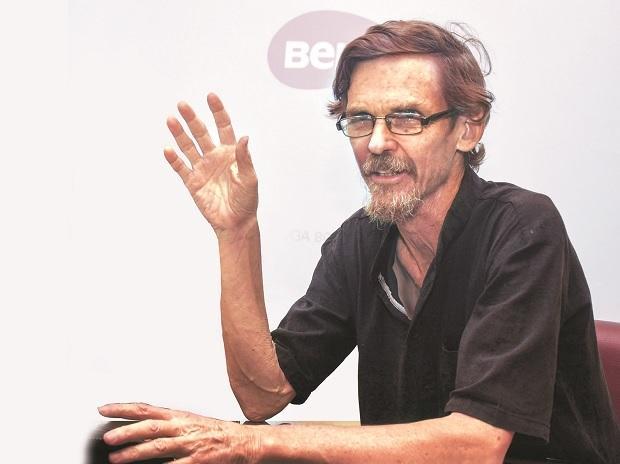
Jean Dreze, a renowned Belgian-born Indian economist. Image Courtesy: Business Standard
New Delhi: India might be heading towards a "serious livelihood crisis" as the situation seems to be worse this time for the working class amid the COVID crisis and local restrictions by states already add up to something close to a nationwide lockdown, according to noted economist Jean Dreze.
In an interview to PTI, he also said the government's target to make India a $5 trillion economy by 2024-25 was never a "feasible target" and was just to pander to the "super-power ambitions" of the Indian elite.
About the impact of the second wave of COVID on the Indian economy, the eminent economist said the situation today is not very different from what it was around this time last year as far as working people are concerned.
"The economic consequences of local lockdowns may not be as destructive as those of a national lockdown. But in some respects, things are worse this time for the working class," he opined.
Further, the eminent economist said the fear of infection is more widespread and that will make it hard to revive economic activity.
"Despite mass vaccination, there is a serious possibility that intermittent crises will continue for a long time, perhaps years.
"Compared with last year, many people have depleted savings and larger debts. Those who borrowed their way through last year's crisis may not be able to do it again this time," he observed.
Dreze also pointed out that last year there was a relief package and today relief measures are not even being discussed.
"On top of all this, local lockdowns may give way to a national lockdown relatively soon. In fact, they already add up to something close to a country-wide lockdown.
"In short, we are heading towards a serious livelihood crisis," he said.
On how the government could have missed seeing the second COVID-19 wave coming, Dreze said the Indian government has been in denial all along.
"Remember, the government refused to admit about any 'community transmission' of COVID for a long time, even as recorded cases were counted in millions.
"When an early analysis of official data exposed the collapse of health services, the government retracted the data," he said.
He pointed out that misleading statistics have been routinely invoked to reassure the public that all is well. "Denying a crisis is the surest way to make it worse. We are now paying the price of this complacency".
India has been reporting more than three lakh new COVID cases daily in recent weeks and the death toll due to the infection is also rising.
Noting that India is also paying the price of a long history of neglect of the health sector, especially public health, Dreze said nothing is more important than health for the quality of life, yet public expenditure on health in India has hovered around a measly 1% of GDP for decades.
When asked about the sort of relief measures that could be put in place to deal with possible livelihood crisis, he said as a starter, the Central government could replay the 2020 relief package.
"But it is important to go beyond that, and to consolidate the social security system on a durable basis," the eminent economist said, adding that ad-hoc, short-term relief measures tend to breed confusion, corruption and waste.
Dreze, who was also part of the National Advisory Council (NAC) that had advised the previous Congress-led United Progressive Alliance government, said much can be done within the framework of existing social security schemes and laws such as the public distribution system, the National Rural Employment Guarantee Act (NREGA), the National Social Assistance Programme, and the Integrated Child Development Services.
He also noted it would be easy to provide supplementary food rations to all ration-card holders for much longer than the proposed two months, and also to expand the coverage of the public distribution system.
"Going beyond existing schemes, I think that a well-designed, inclusive cash-transfer programme would be useful," Dreze opined.
According to him, if intermittent crises are going to continue for years, which is very possible, it would really help to have a well-functioning system of cash relief that can be activated whenever the need arises.
"Turning India into a $5 trillion economy by 2024-25 was never a feasible target, and it is a useless target in any case. The function of this target is to pander to the super-power ambitions of the Indian elite," the Belgian-born Indian economist said.
In 2019, Prime Minister Narendra Modi envisioned to make India a $5 trillion economy and global power house by 2024-25.
According to Dreze, even if we accept GDP as a valid development indicator, the standard approach is to look at GDP at its per capita terms.
"But then India looks like one of the poorer countries in the world, which it is. Looking at aggregate GDP, which is naturally quite large because of India's large population, creates an illusion of prosperity and power," he argued.
Dreze pointed out that actually it is not entirely an illusion because if the government's interest is in power on the world stage rather than in the living conditions of the people, then, yes, aggregate GDP would matter.
"For instance, it would enable you to maintain a large army. But this has nothing to do with development," he observed.
Get the latest reports & analysis with people's perspective on Protests, movements & deep analytical videos, discussions of the current affairs in your Telegram app. Subscribe to NewsClick's Telegram channel & get Real-Time updates on stories, as they get published on our website.









